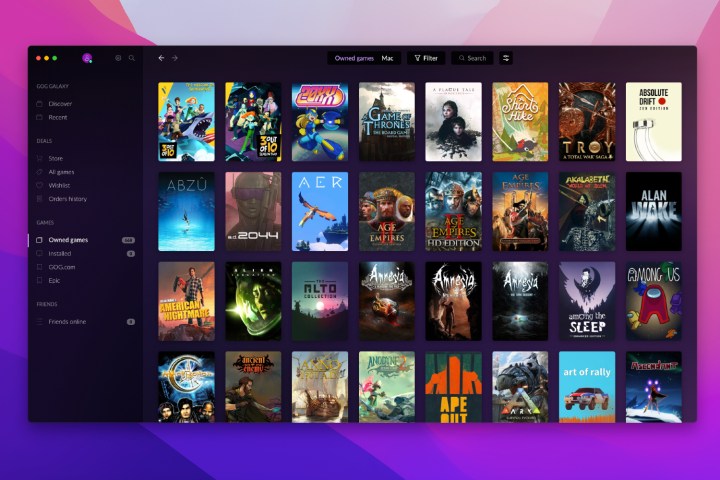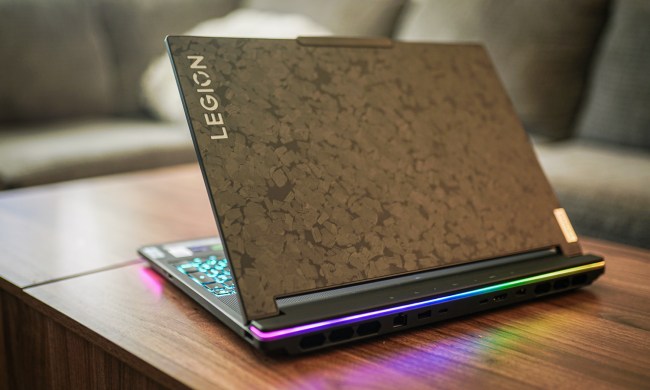Everyone’s mad at Ubisoft — and for good reason.
For a moment, it certainly seemed like Ubisoft was not only shutting down inactive accounts, but also deleting games purchased on Steam. Now, not all of that ended up being true, but the controversy has been a not-so-gentle reminder that you don’t actually own your games — and technically, Ubisoft has every right to delete them if it so pleases.
You don’t own your games
If you haven’t caught wind of the fiasco, an anti-DRM (Digital Rights Management) Twitter user spotted an email circulating from Ubisoft that threatened to delete accounts on the Ubisoft PC app if they remained inactive. If you choose not to follow the link and keep your account safe, Ubisoft will remove your account. Oh, and it seemed like your games along with it.
Rather than keep quiet like any good crisis PR manager would suggest, Ubisoft responded to the tweet and confirmed it was real. Crack the egg. Ubisoft went on further, saying that closing an inactive account would also revoke access to Ubisoft games purchased on Steam. They require an Ubisoft account, and if Ubisoft has flagged your account as inactive, you’d lose access to them. Egg on face.
Hey there. We just wanted to chime in that you can avoid the account closure by logging into your account within the 30 days (since receiving the email pictured) and selecting the Cancel Account Closure link contained in the email. We certainly do not want you to lose access to…
— Ubisoft Support (@UbisoftSupport) July 20, 2023
Like I mentioned, though, Ubisoft has since confirmed that it won’t be deleting any accounts with purchases on it. So you can rest easy that your games are safe even if haven’t logged into your account. There’s a brutal reminder in the whole debacle that you don’t actually own the digital games you’ve purchased on PC. You own a license to play those games, and should some storefront implode, it can decide to take that license with it.
It’s not a distant threat, either. Games for Windows Live has rendered half a dozen titles unplayable, a lapse in DRM authentication took down several games over a weekend, and a recent study from the Video Game History Foundation estimated that 87% of digital games released before 2010 are “critically endangered.” That’s the amount of preservation we have for silent films and pre-World War II audio recordings, and these are for games that aren’t old enough to drive a car.
It might be a spectacle to behold, but there’s a larger conversation here about what platforms are doing to protect the thousands of dollars gamers spend on digital software. We’ve already seen a wave of forced DRM on PC die out and take a swath of games along with it, forcing players to rebuy them on other platforms. It may seem like we’re on solid footing now, but what happens in a decade or two? Will you still be able to access the games you’ve purchased on half a dozen different storefronts?
It’s a fair question to ask, and one that is unique to PC as a platform. PlayStation and Xbox have their own storefronts, and they could revoke licenses if they chose. That would require an entire platform failing, though; Xbox or PlayStation going away entirely, in other words. With PC, it just requires that a publisher decides that a unique launcher is no longer worth it. We’ve seen it happen in the past.
The solutions are slim

There are ways around this — Bethesda’s launcher shut down last year, and you’re still able to migrate your licenses over to Steam — but they’re exceptions. Earlier this year, I wanted to catch up on Star Wars Jedi: Fallen Order, which I had purchased on Steam. I was blocked for around six hours from playing because I hadn’t signed into the new EA App (it was registered to my old, defunct Origin account). I was eventually able to play the game, but not before jumping through headache-inducing hoops to prove that I had purchased the game.
The backlash against Ubisoft for a support response showcases the fear PC players have when it comes to the ownership of their games. It doesn’t matter that Ubisoft has now confirmed it won’t be deleting player accounts; even the slightest notion of that possibility is enough to cause a frenzy. The reason why is clear, too. PC gamers are acutely aware that these digital distribution platforms could pull their libraries if they wanted to. That’s the problem here.
Short of some half-baked blockchain startups, there hasn’t been an effort from publishers like Ubisoft, EA, and Rockstar to allow players to actually own the things they’ve purchased. We have a solution, though: DRM-free games. Platforms like GOG allow you to actually own a game you purchase. You buy the game, get an installer, and it’s yours. Even if the storefront you bought it from goes bust, you can still install and play the game.
Ubisoft isn’t deleting games from accounts, but it could.
The problem, of course, is piracy. It’s a tale as old as digital software: if you don’t want your software pirated, you need to protect it with DRM. More and more, though, it’s becoming clear that these measures don’t actually prevent piracy, hurting only legitimate purchasers in the process.
As a 2020 research paper titled Video Game DRM: Analysis and Paradigm Solution reads in its conclusion: “[We have] found out [existing DRM] are easily susceptible to cracking and the only method that offers some protection is always-online DRM. We conclude that always-online DRM succeeds in rendering games unusable first for pirates and later for legitimate buyers as well. The length of time customers get to use the product they’ve paid for is entirely at the company’s discretion.”
That’s the problem here. The length of time legitimate customers get to use a product is entirely at the company’s discretion. Ubisoft isn’t deleting games from accounts, but it could, and that’s why there was such a panic in the first place. The company’s end user license agreement reads in capitalized text: “This product is licensed to you, not sold.”
So, Ubisoft, or any other major publisher on PC, go ahead and delete my games. I don’t have much of a say in that process anyway. For everyone else, direct your outrage at the DRM-ridden PC ecosystem that never allows you to fully own the things you’ve purchased — because that’s the world we live in today.




